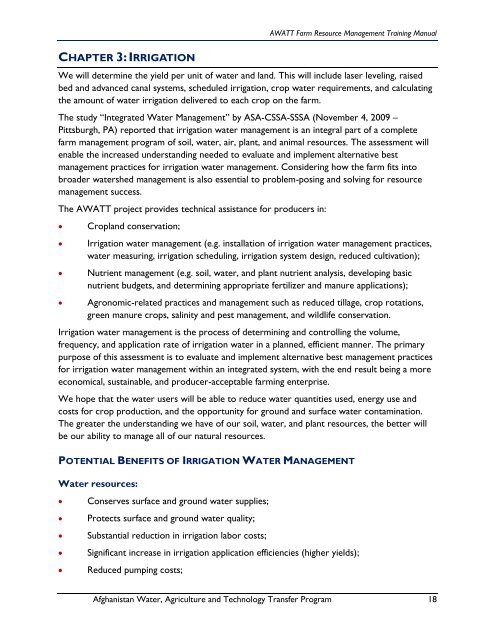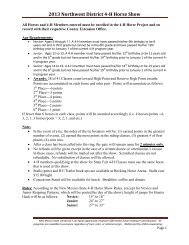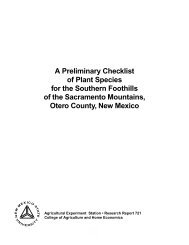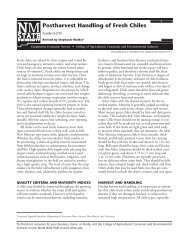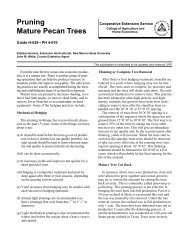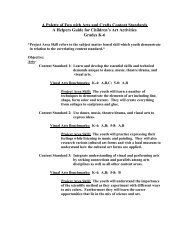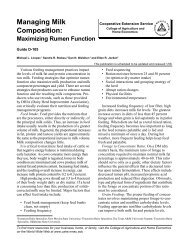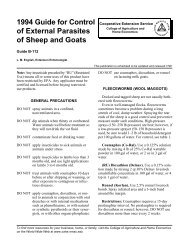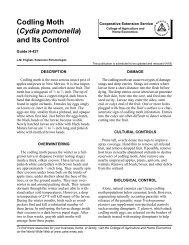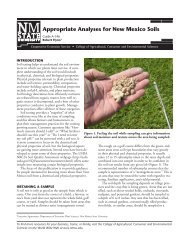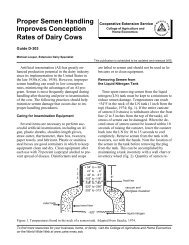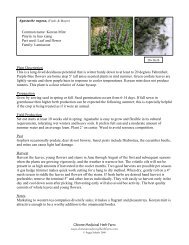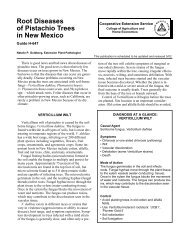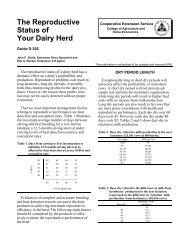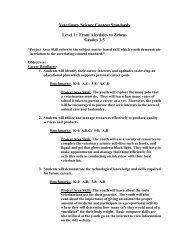Farm Resource Management (FRM) - College of Agricultural ...
Farm Resource Management (FRM) - College of Agricultural ...
Farm Resource Management (FRM) - College of Agricultural ...
You also want an ePaper? Increase the reach of your titles
YUMPU automatically turns print PDFs into web optimized ePapers that Google loves.
AWATT <strong>Farm</strong> <strong>Resource</strong> <strong>Management</strong> Training ManualCHAPTER 3: IRRIGATIONWe will determine the yield per unit <strong>of</strong> water and land. This will include laser leveling, raisedbed and advanced canal systems, scheduled irrigation, crop water requirements, and calculatingthe amount <strong>of</strong> water irrigation delivered to each crop on the farm.The study ―Integrated Water <strong>Management</strong>‖ by ASA-CSSA-SSSA (November 4, 2009 –Pittsburgh, PA) reported that irrigation water management is an integral part <strong>of</strong> a completefarm management program <strong>of</strong> soil, water, air, plant, and animal resources. The assessment willenable the increased understanding needed to evaluate and implement alternative bestmanagement practices for irrigation water management. Considering how the farm fits intobroader watershed management is also essential to problem-posing and solving for resourcemanagement success.The AWATT project provides technical assistance for producers in:Cropland conservation;Irrigation water management (e.g. installation <strong>of</strong> irrigation water management practices,water measuring, irrigation scheduling, irrigation system design, reduced cultivation);Nutrient management (e.g. soil, water, and plant nutrient analysis, developing basicnutrient budgets, and determining appropriate fertilizer and manure applications);Agronomic-related practices and management such as reduced tillage, crop rotations,green manure crops, salinity and pest management, and wildlife conservation.Irrigation water management is the process <strong>of</strong> determining and controlling the volume,frequency, and application rate <strong>of</strong> irrigation water in a planned, efficient manner. The primarypurpose <strong>of</strong> this assessment is to evaluate and implement alternative best management practicesfor irrigation water management within an integrated system, with the end result being a moreeconomical, sustainable, and producer-acceptable farming enterprise.We hope that the water users will be able to reduce water quantities used, energy use andcosts for crop production, and the opportunity for ground and surface water contamination.The greater the understanding we have <strong>of</strong> our soil, water, and plant resources, the better willbe our ability to manage all <strong>of</strong> our natural resources.POTENTIAL BENEFITS OF IRRIGATION WATER MANAGEMENTWater resources:Conserves surface and ground water supplies;Protects surface and ground water quality;Substantial reduction in irrigation labor costs;Significant increase in irrigation application efficiencies (higher yields);Reduced pumping costs;Afghanistan Water, Agriculture and Technology Transfer Program 18


